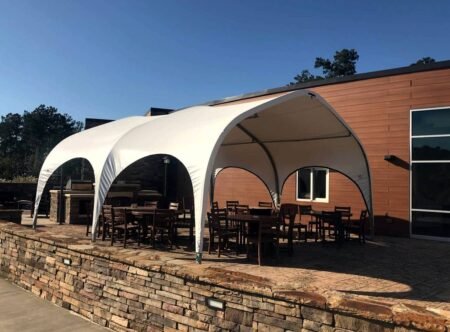The countries of South East Europe have made significant progress on regional cooperation in recent years, gradually assuming more ownership and responsibility for it. Regional cooperation constitutes an integral part of the region’s European agenda.
Advertisement
The transition from the Stability Pact towards a framework with a greater regional ownership has been largely completed.
At the summit of in May 2007 the leaders of the countries of the region decided to establish a that would continue the cooperation, under the political guidance of the SEECP. A was appointed (Mr. H. Bicevic), a Secretariat was set up in Sarajevo, and a liaison office will soon be established in Brussels. On 28 February 2008, the RCC and its Secretary General took over from the Stability Pact and its Special Coordinator.
The RCC will focus on the following areas: economic and social development, infrastructure, justice and home affairs, security cooperation, building human capital, and parliamentary cooperation. It will pay due attention to social cohesion and gender mainstreaming. Emphasis will also be put on the role of civil society in regional cooperation.
The EU is represented in the RCC and is strongly supportive of the process
In 2007, a new Central European Free Trade Agreement (CEFTA) entered into force. It includes all the Western Balkan region and Moldova and aims to create:
- a regional free trade area with more than 90% of total trade and virtually all trade in industrial goods liberalised;
- a simplified single system of rules that will make it easier to trade within the region.
The Agreement includes also provisions in the areas of harmonisation of rules, technical standards, services, competition, government procurement and protection of intellectual property rights. A Secretariat will be set up in Brussels.
Regional trade integration is of crucial importance to the Western Balkans, and a key element of EU policy for the region. Through increased economic ties, the countries of the region will be able to create a stronger basis for economic development, and will thus be better prepared to eventually join the Union. An integrated regional market will also increase the attractiveness of the various countries for much needed foreign investment. CEFTA complements the trade integration of the Western Balkan countries with the EU provided by the Stabilisation and Association Agreements (SAAs). CEFTA will also contribute to prepare the countries that have not yet acceded to the World Trade Organisation to do so.
The European Commission provides technical assistance to facilitate the implementation of the agreement and financial support for the CEFTA secretariat.
The in force since July 2006, extends the EU internal energy market to the countries of the region. It establishes a stable regulatory and market framework capable of attracting investment in energy generation, transmission and networks. The single regulatory space in the region, aligned with EU legislation, will help overcome market fragmentation, enhance security of supply, and contribute to improving the state of the environment.
All institutions provided for in this Treaty have been set up and are operating. In 2007 the Ministers agreed to amend the Treaty to take account of new EU directives on safeguarding security of electricity and gas supplies and infrastructure investment. They also adopted an indicative list of priority infrastructure projects for the region. In October 2007 a Memorandum of Understanding was signed to better address the social dimension of the Energy Community.
The European Community is a full participant in the Energy Community and supports financially its Secretariat, which is based in Vienna.
The , established in 1999, has been the main regional scheme in the Balkans, focusing on promoting regional cooperation and coordinating international assistance. It has gathered the countries of the region (Albania, Bosnia and Herzegovina, Bulgaria, Croatia, the former Yugoslav Republic of Macedonia, Montenegro, Romania, Serbia as well as Moldova), the EU Member States, the Commission, other donor states and international organisations active in the region. Its Special Co-ordinator was appointed by the EU which also contributed to the financing of his office based in Brussels. Since 2002, the Special Co-ordinator has been Dr. Erhard Busek.
The was founded in 1995 as a political forum for regional cooperation. Its participating states are Albania, Bosnia and Herzegovina, Bulgaria, Croatia, Greece, the former Yugoslav Republic of Macedonia, Moldova, Montenegro, Romania, Serbia, and Turkey.
was first established in 1992 and included countries of Central and South East Europe that now have joined the EU and therefore withdrew from CEFTA. In December 2006 the new CEFTA was signed by Albania, Bosnia and Herzegovina, Bulgaria, Croatia, the former Yugoslav Republic of Macedonia, Moldova, Montenegro, Romania, Serbia and UNMIK/Kosovo. Bulgaria and Romania withdrew from the Agreement, upon joining the EU on 1.1.2007.






